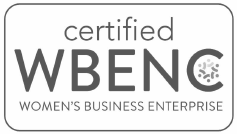The Pew Research Center reports that, as of February 2018, 69 percent of Americans use social media. In 2005, that number was only 5 percent! As social media usage has grown, an increasing number of businesses have embraced the opportunity to reach online audiences through Facebook, Twitter, Instagram, YouTube, and more. But, with increased competition to win audiences’ attention, businesses are challenged to rise above the clutter to maximize the effectiveness of their social media marketing campaigns. The first step towards achieving optimal social media marketing success? Avoid these common social media mistakes that businesses make.
Mistake #1: Too Much Social Selling
You wouldn’t walk into a cocktail party and launch into a sales pitch before making an introduction and the same can be said for your social media marketing program. You need to build strong relationships before launching into a sales pitch.
Social media offers businesses the opportunity to engage with stakeholders in a more casual format. There are opportunities for education and engagement – and to collect real-time feedback. Unsure what topic would be best for your upcoming educational breakfast? Wondering what blogs your online audiences are reading? Just ask.
While businesses can benefit from showcasing their products and services on social media, it is important to position your organization as a trusted source of original and third-party content. This will help to build trust in the organization, which lays the foundation for future sales.
Mistake #2: Talking at People Instead of Engaging with Them
Social media marketing is far from ‘set it and forget it.’ If you opt to schedule a month’s worth of content at the onset of the month and don’t check back in until it’s time to schedule the next batch of content, you are sacrificing the opportunity to engage with your social media communities. Asking questions, soliciting feedback and encouraging sharing can all help to strengthen a company’s social media marketing program.
Beyond encouraging online audiences to engage with your content and take action, it’s important to acknowledge those who are doing so and show your audiences that there is a real human being behind the content and that you value their input and engagement.
Mistake #3: Pushing the Right Content on the Wrong Platform
It doesn’t matter how great your video is, how informative your Infographic is or how entertaining your memes are if you’re putting the right content on the wrong platform, or vice versa. Something as simple as sending a 3-5 question electronic survey to your email database to gauge what platforms they are using and what types of content they are open to receiving can help to avoid this common gaffe. Other ways to make sure you’re sharing the right information in the right places? Looking at the analytics for each of your social media marketing platforms to see what content is generating the most clicks, likes, shares, etc.
Mistake #4: Overlooking the Analytics
Data, data, data. Digital marketing offers access to an unprecedented amount of quantifiable information to help inform a company’s marketing strategy. And, the brands who achieve the highest levels of social media success use this data to help refine their content development and timing. Monitoring analytics on an ongoing basis can help to uncover valuable content consumption trends that can be used to improve social media marketing performance not only in the short-term but on an ongoing basis.
Mistake #5: Sacrificing Quality in Favor of Quantity
We’ve joked before that feeding the “content beast” is no small feat. And, while you don’t want sparsely populated social media channels that lead audiences to question if you’re still in business floating around the internet, generating a high volume of low quality content that your target audiences don’t want to consume can be equally perilous.
When mapping out your content creation strategy, be realistic about the volume of content you can commit to creating on an ongoing basis and what resources and safeguards need to be in place to ensure you are maintaining commitment to high quality content.
Social media can help businesses to cultivate and engage new audiences, broaden their geographic reach, build relationships with media and diversify their bank of educational content. By avoiding the common mistakes that diminish results and impact, businesses can provide the value of social media marketing to their bottom line with quantifiable metrics and tangible results.


